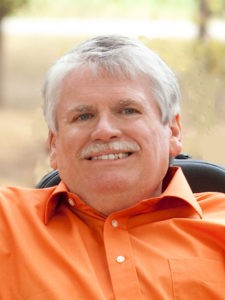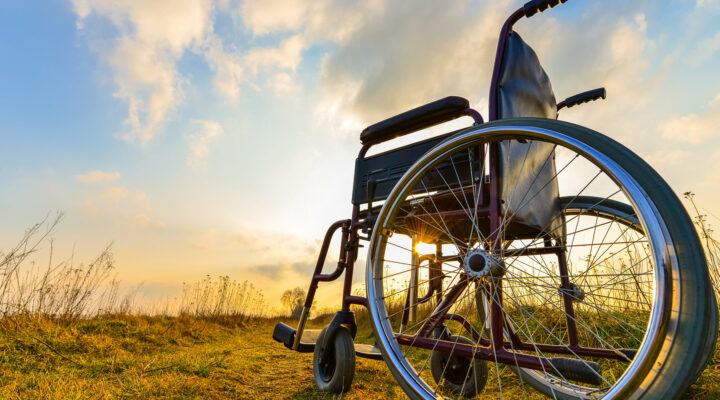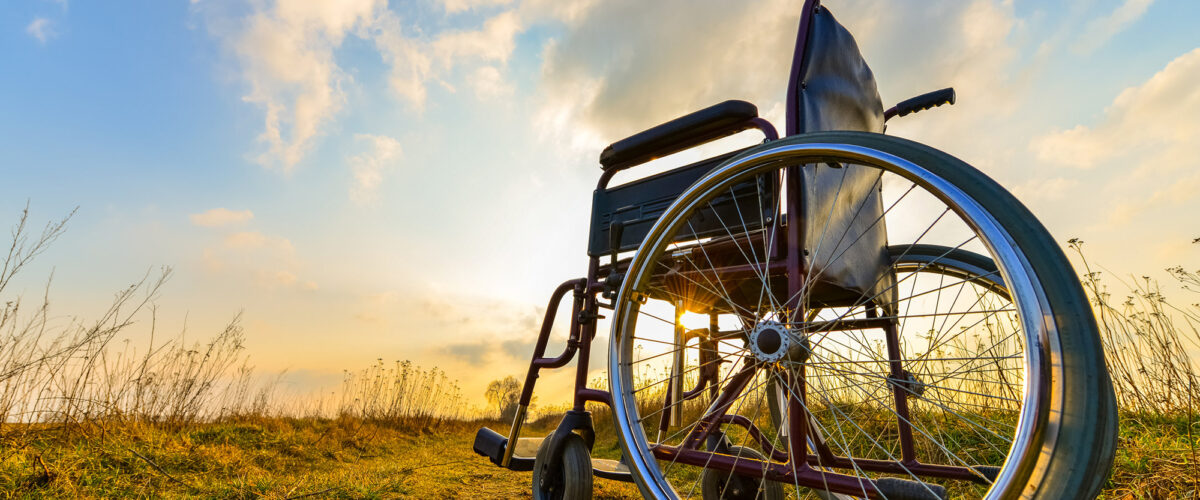I frequently hear white people claim we do not have a race problem in this country, and to prove their point, they say they like Black people and even have a few Black friends. Even though they are aware of the existence of some openly racist organizations, they personally never have knowingly discriminated against a Black person. They are quick to add that if Black people simply took control of their lives and made good choices, they would get ahead and enjoy the same privileges as white people. It is available to them. It is easy to point out enough successful Black people to prove their case.
But they are mistaken.

Terry Austin
I’m a 71-year-old white man, raised in the very white suburbs, educated with several degrees, and I think I better understand racism than most white people. I have spent time with Black people. My first real job was at a radio station in Denver that played what we called then “soul music.” Today, it would probably be akin to a hip-hop music station, only more black. I was one of only two white employees at the station. Currently, I’m a book publisher, and a high percentage of books I have published have been written by Black authors. I have ghostwritten several books for Black leaders.
But my experiences in the workplace are not the reason I understand racism. I understand racism because I have experienced something very similar all my life.
I will offer some background for those who don’t know me personally. I was born as a healthy baby to a father who was a college student right at the end of the war, and the world was about to explode with opportunities. However, a year later, I came down with polio, and my world changed. Without going into all the details, what you need to know is that I had to use a wheelchair until I was 11. I walked on crutches and used a wheelchair occasionally until my mid-50s, and then returned to using the wheelchair full time.
“My physical handicap has provided insight into the way some people have experienced racial prejudice.”
Being physically handicapped is not something I chose. If given the opportunity today, I would choose health and mobility despite the many good things being handicapped has taught me. I’m not complaining, nor do I think I have been cheated by life. The only point I want to make is that my physical handicap has provided insight into the way some people have experienced racial prejudice.
I know what it is like to be considered inferior
Many people in my life have gone the extra mile to include me in the normal activities of life. When I played trumpet in the high school band, I was expected to be at all the marching band practices and learn the songs. When the band was in a parade, our band leader, Mr. Priezner, pushed me down the street in my wheelchair. When we took field trips at school, students simply lifted me out of the wheelchair and carried me wherever they went. My wheelchair has gone places that would make my mother cringe if she knew.
I never have complained about being left out, but the fact that I needed special attention and consideration always made me feel inferior. I know my parents and teachers always had to make provisions for Terry when making plans. Even though they did so without complaint, the fact that they had to was not a good feeling.
When the neighborhood kids divided up for a baseball game, I knew I would not be chosen. When our high school baseball coach asked me to be the official scorer for the baseball team, it was because he knew I loved baseball but couldn’t play.
Listen carefully: I’m not complaining that I was mistreated because I wasn’t. All I am saying is that I know what it feels like to be considered different and consequently inferior to the “normal” folks. All you have to do is look at me sitting in a wheelchair, and you immediately make judgments about me. I suspect the same is true for Blacks. It is easy for them to believe that all that needs to be done is notice their color, and we already make judgments about them.
I know what it is like to work harder to accomplish the same as others
Years ago, I got a new pair of leg braces that were supposed to make my walking on crutches easier. They were fitted, and I struggled to the car and drove home. For weeks I tried walking with the new braces, and it just seemed harder and harder. I finally returned to the physical therapist to get help. He watched me struggle to walk, and then he told me something that has stuck with me ever since.
“I have discovered my disadvantage carries over into areas of life that are not dependent upon physical strength.”
The therapist said when most people stand up and walk across the room, it requires 10% of their physical strength. When I did the same thing, it required 90% of my strength. As I said earlier, I no longer walk using braces and crutches. However, the most physically taxing thing I do every day is get out of bed and get dressed. Some days it seems to require 100% of my strength.
I have discovered my disadvantage carries over into areas of life that are not dependent upon physical strength. One time I was being considered for a job, and I was by far the most qualified and capable person for that particular job. If not for my physical handicap, it would have been a no-brainer to give me the job. However, before I received the offer, they actually called my father to ask if he thought I could handle the task. It was incredible. I was not a teenager moving away from my parents’ house for the first time. I was in my 40s, provider for my wife and three sons, and had been working for the same organization for years. Yet they overlooked all that because of my physical handicap.
I learned early in life that I had to work harder to accomplish the same as others. In the job world, I had to be better, produce more and know more just to be equal — all because I started with a disadvantage.
This is what Black people experience every day. Not all of us are internally driven to succeed. That is why you find many Blacks still in the slums and many handicapped people living on disability income. Many people are not capable of outworking and outthinking everyone else, so they get shoved aside. I understand how they feel.
I know what it is like to make other people uncomfortable
Being on crutches and in a wheelchair, I have seen my share of uncomfortable expressions — people calculating what to say to me or how to say it or whether to say anything at all. The other day I had a salesman ring our doorbell. I opened the door and listened to him for a few minutes before telling him I wasn’t interested.
He said, “Ok, thanks,” and turned to walk away.
I stopped him and said, “Wait a minute. You gave up too easy.”
His reply was enlightening. He said, “Well, I don’t argue with people who are handicapped.”
“I reminded him that I was crippled, not stupid.”
I reminded him that I was crippled, not stupid. Why did he think it would be offensive to treat me like other customers?
Kids come to me at the store and ask, “What’s wrong with you?” right before a parent grabs their arm and drags them away. If I pose a question to someone, they often will address their answer to my wife standing at my side. When people walk down the sidewalk and come near my wheelchair, they will often say, “Excuse me.”
When I was preaching in numerous churches for several years, my boss would tease me that I had an unfair advantage. He thought when I hobbled up to the pulpit to preach, people would get silent and listen very carefully, just to see if I could actually speak.
When I meet someone, they never ask me what kind of work I do. Although they want to know, people won’t ask why I’m in a wheelchair.
I think the feeling I have about people being uncomfortable around me is the same feeling Black people experience. When they enter the room, they know the most noticeable thing about them is their color, which immediately conjures up preconceived ideas. It puts them at an immediate disadvantage, meaning they have to work harder to be understood.
“I think the feeling I have about people being uncomfortable around me is the same feeling Black people experience.”
I know what it is like not to have the same opportunities as others
While in my final year of college, as I was studying for the ministry, specifically to serve as pastor of a local church, I asked the head of the department if he thought I would be allowed to be the pastor of a church. His reply was it might be possible, but it would be very difficult. A few years later, as I was winding up my seminary education, the school highly recommended I consider a position as a chaplain or counselor. Obviously, they knew nothing about me because a counselor has to be willing to listen to people’s problems and show empathy, which is not something I do very well.
It took a year and a half before a church finally invited me to be their pastor. I worked hard for 13 years and was successful. However, when it was time for me to move on (the destiny of nearly all pastors at some point), no church was interested, even though I had proved I could do the job. They just couldn’t get past the handicapped thing.
What’s interesting is that churches didn’t think I could physically handle being their pastor, but then for the next 15 years, I worked with more than 500 churches, traveling to nearly 20 states. I could do it; I just was not given the opportunity. Folks with lesser skills than I had could easily find work with churches.
I know Black people experience the same discrimination. Yes, I used the word “discrimination.” We may not require they use different water fountains, but they are still excluded from things that non-Blacks access with greater ease.
“If you believe we live in a society where racism is no longer a problem, that’s just because it’s not a problem for you.”
If you believe we live in a society where racism is no longer a problem, that’s just because it’s not a problem for you. To claim we have a color-free world that is equal for all means you haven’t personally experienced the pangs of discrimination. If you believe Blacks are treated equally by banks, police, human resource departments, schools and other institutions, then you are not paying attention.
When you criticize movements like Black Lives Matter and your response is “All Lives Matter,” you don’t understand the world of others. If you want to better understand what it means to be discriminated against, strap yourself in a wheelchair and have someone take you to the mall for a few hours.
There is a racial problem in this country, and I suspect there always will be (after all, we are all sinful humans). But we do ourselves no favor when we criticize and condemn others for pointing it out.
I don’t fully know how a Black man feels, but I do know he has legitimate feelings I will never experience as a white man. It is incumbent upon me to allow him to express those feelings without condemnation.
Terry Austin says from his first day of life he was taught to love the church. He has lived out that passion in various ways as a pastor, church consultant, author and critic. He is currently a full-time writer and book publisher and actively engaged with house churches.
Related articles:
Christian masculinity, culture and racism: An interview with Kristin Du Mez
Let’s demonize racism, not Critical Race Theory | Opinion by Greg Garrett


